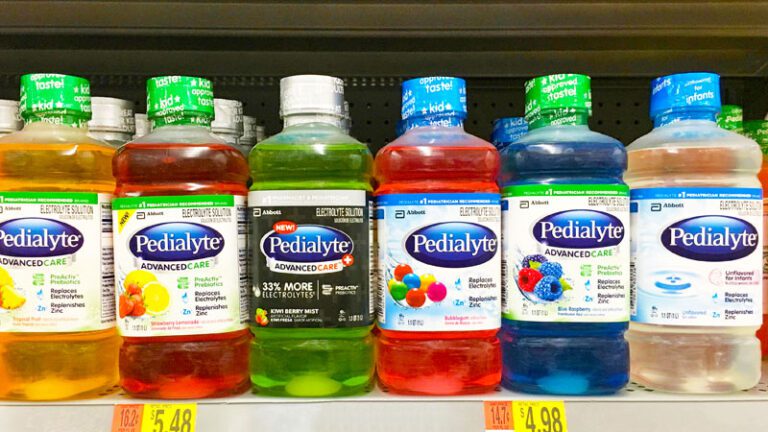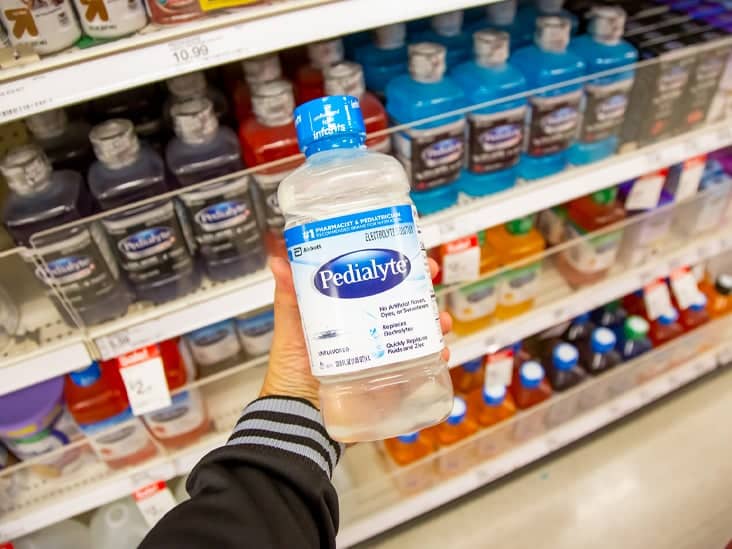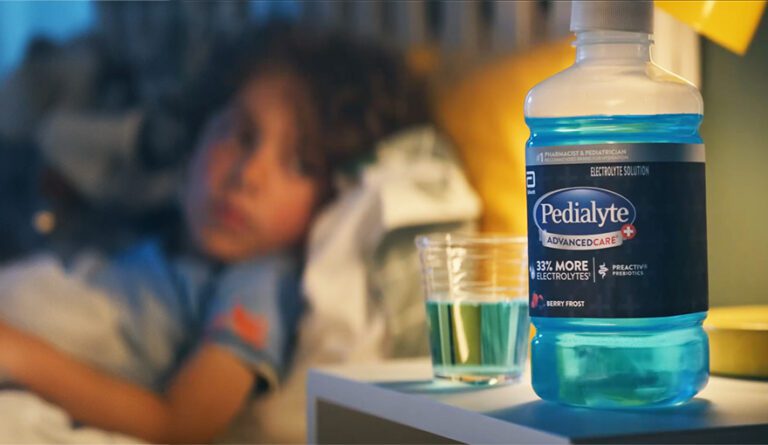Pedialyte is a go-to hydration solution for both children and adults, commonly used to prevent dehydration from illness, intense workouts, or hangovers. However, an important question many ask is: Does Pedialyte expire?
- What Is Pedialyte and Why Is It So Popular?
- Does Pedialyte Expire? Understanding Its Shelf Life
- Can Pedialyte Expire Early?
- How Long Can You Use Pedialyte After Expiration Date?
- What Are the Ingredients in Pedialyte and Do They Spoil?
- How to Store Pedialyte to Extend Shelf Life
- Does Freezing Pedialyte Affect Its Effectiveness?
- Freezing Pedialyte: Does It Help?
- Does Pedialyte Expire If It’s Powdered?
- Does Pedialyte Need to Be Refrigerated?
- Does Pedialyte Expire Faster in Hot Climates?
- Signs That Your Abbott Pedialyte Has Gone Bad
- Can You Use Expired Pedialyte in Emergencies?
- Can You Mix Formula and Pedialyte?
- How Does Pedialyte Abbott Compare to Homemade Electrolyte Solutions?
- Advanced Care Pedialyte vs Regular Pedialyte
- Can an 8-Month-Old Have Pedialyte Safely?
- Pedialyte for Infants Dosage & Usage
- Is Pedialyte Safe for Everyday Use?
- Pedialyte During Pregnancy: Safe or Not?
- Can Pets Drink Pedialyte?
- FAQs
- Final Thoughts
The short answer is yes—like any consumable product, Pedialyte has a limited shelf life. Whether you’re using abbott Pedialyte Advanced Care, Pedialyte Sport Powder, or unflavored Pedialyte, knowing when to discard it is essential for safety and effectiveness.
Let’s explore how long Pedialyte lasts, how to store it correctly, and when it’s time to throw it out.
What Is Pedialyte and Why Is It So Popular?
Pedialyte is a medically formulated oral rehydration solution (ORS) designed to replenish electrolytes and fluids lost due to illness, heat, or physical exertion. It contains:
-
Sodium and potassium (electrolytes)
-
Dextrose (glucose) for rapid absorption
-
Small amounts of citric acid and flavorings
Unlike most sports drinks, Pedialyte keeps the sugar low and the electrolyte balance optimized, making it ideal for:
-
Children with diarrhea or vomiting
-
Adults recovering from hangovers
-
Athletes needing post-workout hydration
-
Pregnant women battling morning sickness
-
Seniors managing heat exhaustion
But like any health product, Pedialyte has a shelf life.
Common Uses of Pedialyte

- Illness Recovery: Treats dehydration from vomiting and diarrhea.
- Workout Hydration: Used as a low-sugar alternative to sports drinks.
- Hangover Relief: Helps replenish lost electrolytes after alcohol consumption.
- Infant Care: Safe for babies, commonly recommended by pediatricians.
Regardless of how you use it, ensuring Pedialyte remains fresh and effective is essential.
Does Pedialyte Expire? Understanding Its Shelf Life
Yes, Pedialyte does expire. Whether it’s a liquid bottle, powder packet, or freezer pop, each Pedialyte product has an expiration date. That’s because its ingredients, especially water and electrolytes, degrade over time, making it less effective and potentially unsafe.
Here’s a simple breakdown
Product |
Unopened Shelf Life |
After Opening or Mixing |
|---|---|---|
| Bottled Liquid Pedialyte | 2 years | 48 hours (refrigerated) |
| Pedialyte Powder Packets | 2–3 years | 24 hours (after mixing) |
| Pedialyte Freezer Pops | 1 year | Use immediately after thawing |
So,does Pedialyte expire after 48 hours? If opened — absolutely. It may look fine, but harmful bacteria could be growing inside.
If you’re unsure whether your Pedialyte is still safe, check for signs of spoilage such as changes in color, smell, or texture.
Can Pedialyte Expire Early?
Yes, Pedialyte can go bad before its expiration date under poor storage conditions. The following factors accelerate spoilage:
-
Heat exposure (especially in hot climates)
-
Unsealed containers or leaky lids
-
Drinking directly from the bottle
-
Incorrect refrigeration
If you live in a humid or tropical region, the Pedialyte shelf life may be shorter. That’s why proper storage is everything.
How Long Can You Use Pedialyte After Expiration Date?
While unopened Pedialyte may still be safe to consume for a short period after expiration, its effectiveness decreases over time. The electrolytes and minerals may degrade, making the solution less efficient at hydrating the body.
General Guidelines:
-
Unopened bottles may still be safe up to 6 months past the printed date, provided they were stored properly.
-
Pedialyte powder, if sealed and dry, can last even longer but may lose potency.
-
Opened liquid or mixed powder should NEVER be consumed after 48 hours, no matter what the expiration says.
Again — if it looks off, smells weird, or tastes odd, toss it. Better safe than sorry.
What Are the Ingredients in Pedialyte and Do They Spoil?
Curious what makes Pedialyte so effective? Let’s check out the Pedialyte nutrition facts that influence how quickly it can go bad:
-
Water – Base ingredient; prone to bacterial growth once opened
-
Dextrose (glucose) – Helps absorb electrolytes but can ferment or attract bacteria
-
Sodium chloride, potassium citrate – Key electrolytes; degrade over time
-
Zinc, prebiotics (in Advanced Care Pedialyte) – Sensitive to temperature and moisture
-
Natural flavors and colors – Fade or spoil with age
Even though carbohydrates in Pedialyte are low, they provide enough sugar to feed bacteria if not stored correctly. That’s why once opened, Pedialyte nutrition information becomes irrelevant after 48 hours — it’s unsafe to use.
How to Store Pedialyte to Extend Shelf Life
Here’s how to get the most life out of your Pedialyte:
Before Opening:
-
Store in a cool, dry place (below 77°F/25°C)
-
Keep powder packets sealed airtight
-
Avoid direct sunlight and heat sources
After Opening:
-
Refrigerate immediately
-
Don’t drink from the bottle — pour into a clean glass
-
Label with the opening date
-
Discard after 48 hours
Storing it right is your best bet to avoid asking later — does Pedialyte expire prematurely?
Does Freezing Pedialyte Affect Its Effectiveness?
Freezing Pedialyte: Does It Help?
Can you freeze Pedialyte? Absolutely. Making electrolyte popsicles or freezing it in ice cube trays is a smart move — especially for kids.
Pros:
-
Great for sick toddlers or picky eaters
-
Extends usability without waste
-
Fun and refreshing for summer use
Cons:
-
Texture might change after thawing
-
Shake well if separation occurs
-
Some flavors (especially in Pedialyte Sport Powder) may taste stronger post-freeze
Does Pedialyte Expire If It’s Powdered?
Pedialyte powder tends to outlast its liquid counterpart. That’s because without water, there’s less risk of microbial growth. Still, it can:
-
Clump from moisture
-
Lose flavor or color
-
Develop strange smells if exposed to air
Pro Tip: Store unused powder in an airtight container, and never mix more than you’ll drink in a day.
Does Pedialyte Need to Be Refrigerated?
Unopened Pedialyte does not require refrigeration. However, once opened, it must be refrigerated and used within 48 hours.
Never consume leftover Pedialyte that has been sitting out for more than 2 hours. Warm temperatures allow bacteria to grow rapidly.
Does Pedialyte Expire Faster in Hot Climates?
If you live in a hot and humid climate, Pedialyte may expire faster due to heat exposure. High temperatures can break down its electrolytes and preservatives, reducing its effectiveness.
How to Protect Pedialyte from Heat Damage:
- Store it in a cool, dark place away from direct sunlight.
- Keep powder packets sealed in airtight containers.
- Refrigerate liquid Pedialyte immediately after opening.
- Never leave Pedialyte in a hot car or near heat sources.
Signs That Your Abbott Pedialyte Has Gone Bad
If you’re unsure whether your Pedialyte is still safe to drink, look for the following warning signs:
- Cloudy appearance – Fresh Pedialyte should be clear or slightly colored.
- Odd smell – If it has a sour or unusual odor, discard it.
- Strange taste – Any off-taste may indicate bacterial growth.
- Clumping (Powder Form) – If the powder sticks together, moisture may have affected it.
If you notice any of these signs, it’s best to throw it out and open a fresh bottle.
Can You Use Expired Pedialyte in Emergencies?
In urgent situations, an unopened bottle of Pedialyte slightly past its expiration date may still be safe to drink if it looks and smells normal. However, it won’t be as effective at hydrating the body.
For babies, toddlers, or individuals with weakened immune systems, it’s always best to use fresh Pedialyte to avoid any risk of contamination.
Can You Mix Formula and Pedialyte?
Mixing infant formula with Pedialyte is not recommended unless your pediatrician specifically instructs you to do so. That’s because both products serve different purposes:
-
Formula: Nutritionally complete food for babies
-
Pedialyte: Electrolyte hydration for fluid replacement
Combining them can interfere with absorption and may dilute the nutritional value your baby needs. If hydration is the priority, give infant Pedialyte separately between feedings, following your doctor’s dosage advice.
How Does Pedialyte Abbott Compare to Homemade Electrolyte Solutions?
Some people prefer making homemade electrolyte drinks, but how do they compare to Pedialyte’s scientifically formulated blend?
Pedialyte vs. DIY Electrolyte Drinks
|
Factor |
Pedialyte |
Homemade Electrolytes |
|
Electrolyte Balance |
Clinically balanced |
May be inconsistent |
|
Sugar Content |
Low |
Often too high |
|
Shelf Life |
2 years (unopened) |
1–2 days |
|
Taste |
Variety of flavors |
May taste salty or bland |
|
Effectiveness |
Medical-grade rehydration |
Varies by recipe |
While homemade electrolyte drinks can work in a pinch, Pedialyte remains the best choice for fast and effective rehydration due to its precise electrolyte balance.
Advanced Care Pedialyte vs Regular Pedialyte
What makes Advanced Care Pedialyte different?
-
Contains zinc and prebiotics for gut support
-
Supports quicker recovery during illnesses
-
Helps reduce diarrhea duration
It’s ideal for both kids and adults recovering from viral infections or digestive upset. But the same expiration rules apply.
Can an 8-Month-Old Have Pedialyte Safely?
Yes — but with medical guidance.
Can 8-month-old have Pedialyte? In most cases, yes. Pediatricians often recommend Pedialyte for babies over six months dealing with vomiting or diarrhea. Always check the label and ensure it’s specifically formulated for infants, such as:
-
Pedialyte Unflavored (no added colors or sweeteners)
-
Pediatrician-approved doses
-
Monitor for signs of improvement or worsening dehydration
Pedialyte for Infants Dosage & Usage
Pedialyte for infants dosage varies based on age and weight. Never guess the amount. Here’s a general rule of thumb:
Age |
Typical Dosage |
|---|---|
| 0–6 months | Only under pediatric guidance |
| 6–12 months | 1–3 ounces every 15–30 mins |
| 1 year+ | Up to 4–6 ounces per serving |
Watch for:
-
Urine output
-
Alertness
-
Moist mouth or lips
If your child refuses to drink, consult your pediatrician or go to the ER immediately.
Is Pedialyte Safe for Everyday Use?
While Pedialyte is generally safe, it should not replace daily water intake. Regular consumption without medical need can lead to:
- Excess sodium intake, which may cause high blood pressure.
- Increased sugar intake, which isn’t ideal for diabetics.
- Digestive discomfort, if overused.
When Is It Safe to Drink Pedialyte Daily?
- If prescribed by a doctor for chronic dehydration.
- For athletes needing electrolyte replenishment.
- If recovering from illness, heat exhaustion, or extreme workouts.
For daily hydration, plain water is still the best choice!
Pedialyte During Pregnancy: Safe or Not?
Yes! Pedialyte during pregnancy is generally considered safe — and often recommended by OB/GYNs. It is safe for pregnancy and can be helpful in cases of morning sickness, dehydration, or heat exhaustion.

Benefits for Pregnant Women:
-
Replaces electrolytes lost from vomiting
-
Reduces dizziness and fatigue
-
Helps maintain hydration during summer or illness
Tips:
-
Choose Pedialyte unflavored if sensitive to smells or dyes
-
Always check the label for added sugars
-
Stay within daily serving sizes
Is Pedialyte HSA eligible? You bet. And is Pedialyte FSA eligible? That too. Just save your receipt and use your card to buy it!
Can Pets Drink Pedialyte?
Yes, Pedialyte is sometimes used for dehydrated pets like dogs and cats—but only under veterinary guidance.
How to Give Pedialyte to Pets:
- Mix with water (1:1 ratio).
- Use unflavored Pedialyte (no artificial sweeteners).
- Offer in small amounts using a syringe if necessary.
When to Avoid Pedialyte for Pets:
- If your pet has kidney disease or diabetes.
- If they are vomiting excessively.
- If they refuse to drink water for more than 24 hours (seek vet care!).
Always consult a vet before giving Pedialyte to your pet!
FAQs
Is it safe to drink an IV fluid that is expired but still sealed?
No, expired IV fluids can lose sterility and potency, increasing the risk of infection or reduced effectiveness. Always use fresh, unexpired IV fluids for safety.
Does Pedialyte not keep working after 48 hours?
After 48 hours, opened Pedialyte may develop bacterial contamination and lose its electrolyte stability, making it unsafe to drink. It’s best to discard it and use a fresh bottle.
How much Pedialyte can an adult drink in one day?
Adults can safely consume 1–2 liters per day, depending on dehydration severity, but excessive intake may disrupt electrolyte balance. Consult a doctor for prolonged use.
What’s in Pedialyte that makes it go bad after only 48 hours?
Pedialyte lacks strong preservatives, and its water-based formula makes it prone to bacterial growth after opening, reducing its safety and effectiveness.
What should I do if my cat has vomiting and diarrhea?
Offer small amounts of unflavored Pedialyte mixed with water and monitor hydration, but if symptoms persist for over 24 hours, seek veterinary care immediately.
Does Carbohydrates in Pedialyte Affect Its Expiration?
No, the carbohydrates in Pedialyte, primarily dextrose (glucose), do not directly impact its expiration. However, once opened, the sugars can encourage bacterial growth, which is why Pedialyte must be used within 48 hours to ensure safety and effectiveness.
Final Thoughts
Yes, Pedialyte does expire, and proper storage is crucial to maintain its effectiveness. Always check expiration dates and discard Pedialyte that is past its prime, smells off, or has changed color.
For maximum safety, use Pedialyte within 48 hours after opening, and never consume it if it has been left out for over 2 hours.
Read more:
Baby Hates Vitamin D Drops (What Happens If She Won’t Take Them?)









